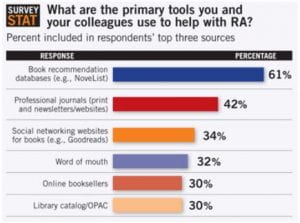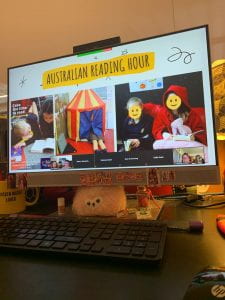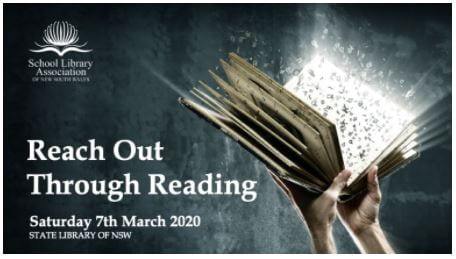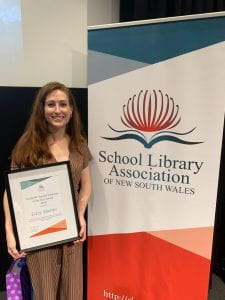Summary
Content – Reader’s Advisory
Type – Online Moodle
Length – 3 weeks 4-5 hours per week
Level – Public or School Librarians
Organisers – ALIA training
Presenters – Julie Barkman & Gary Lom TAFE NSW
Format – Modules & forum postings
Reflection
Running over three weeks the course was delivered online through the TAFE moodle. Learning online is something that I am comfortable with as I have worked through my uni degree through distance education. Each week a new module was opened to the group and at your own pace you could work through the content, with required readings and forum discussions. This was a great way to be able to learn through other people’s experiences and see how they had approached RA in their role. It also showed me how RA was running within a public library setting, as I work within a school setting making sure students are finding books they want to read and helping them is a weekly task. Seeing them week in week out, it is easier for me to develop a reading relationship with them so RA can be easier in that sense.
Having worked within a school library for a number of years now asking questions to students about what they wanted to read had become a bit repetitive. Asking questions like “What do you like to read” and “What was the last good book you read” were giving me the same answer back “ummm I don’t know…funny books?”. Working with children this sometimes is to be expected but I wanted to develop different ways to get them to think about what they liked about a book so I could match them with a new book/series to explore. When I saw through ALIA they were running a Reader’s Advisory course I thought that it could help me develop my skills in this area.
There were a number of learning outcomes to help us develop a broader idea of what RA is what and what it looks like within libraries. These outcomes were:
- Identify different customer groups, reading levels and preferences
- Explore a range of literature and formats
- Utilise tools and resources to facilitate RA services
- Develop reader’s advisory interview skills and techniques
- Promote RA services at your library
Week one of the course was an introduction to Reader’s Advisory was all about the role of RA, the readers and reading. We were provided with a definition of RA:
This type of service is provided by public libraries in response to clients’ requests dealing with all aspects of literature and reading for leisure. It can be called Readers’ Advisory (RA), Readers’ Guidance , or Readers’ Services.
We also learnt what the purpose of RA is and how it fits within a library context. As the role of the librarian is to guide their clients to quality literature, finding out what their reading interests are is integral in doing this. RA services help clients who are stuck finding a book, this can lead them to new authors, themes and genres, opening up more of the library collection to them. Everyone goes through moods when they are reading, I know myself, I go through phases, from high fantasy to romance to action and adventure, it depends on how I’m feeling at the time. Providing RA services can also assist with collection development as you are building relationships with your clients you know what they want to read and this guides what you are adding into the collections. Providing good services like any industry creates satisfied users within the community and they are more likely to keep coming back!
Week two got us thinking about the different tools and techniques that you can access to help with RA services. It also covered how the collection is being accessed by your clients. Is it set up for easy browsing and quick access or are they problems with the arrangement.

From the graphic above it shows that people are more dependent on book recommendation databases to help assist them with RA. Knowing different databases and useful websites like these can help guide clients to finding more than one book they would like to read.
- Inside a dog
- Reader2Reader
- Goodreads
- Fantastic Fiction
Understanding the library catalogue is also very important as this is normally the first place you will look at to find similar books. Good subject headings provide useful searches like these:
- Adventure stories
- Romance fiction
- Cookery, Italian – Fiction
- Friendship – Juvenile fiction
- Dogs – Pictorial works — Juvenile fiction
Finally in week three we learnt what is required to perform a good RA interview. The success of finding good books for your client all come from the interview. The better you get to know your client the more of an idea you will have on what they would like to read.
Good opening questions:
- What other books have you recently read and enjoyed?
- What made this book especially enjoyable?
- What books have you recently read and not enjoyed?
By the end of the course I had become more comfortable with performing these interviews with the children at school. I was able to utilise the new platforms I had learnt about to find new books to select for the library collection. I used different questions to get them to think about what they enjoyed most about a book so I could pair them with their next new read. I have continued to use these skills within my practice.
Evidence
RA – Invoice
RA Certificate





